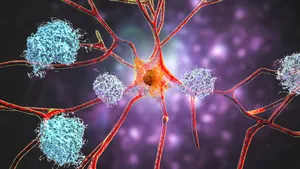- August 14, 2024
- Brain Injury

In a recent blog, we discussed what a catastrophic injury is, how it may affect an individual and their family, and what a person might expect from experiencing a catastrophic injury. Damage of this degree can lead to lifelong complications, and depending on the injury and where it was obtained, a person could experience complications with motor function, cognitive processing, and cognitive understanding. In today’s blog, your Dallas, TX catastrophic injury attorneys take a look at catastrophic injuries that result in traumatic brain injuries and what our team can do to help you achieve justice if the injury was the result of another person or company’s negligence.
Everyone’s TBI is Unique
You likely have heard the term Brain Injury before, but did you know there are different levels and different degrees to how you are affected? In fact, a concussion may be considered a mild traumatic brain injury, and the degree of impact will vary depending on where and how a person became injured.
One thing to keep in mind about brain injuries — whether they are considered traumatic or not — is that each one is different. While there are expected symptoms that a person may or may not experience, the truth of the matter is that there is usually no way to predict exactly how a traumatic brain injury will affect an injured person. In fact, no one person’s experience with TBI is the same as another’s, and based on the facts and your needs, your doctor will be able to provide appropriate advice and insight regarding recovery. To learn more about the individuality of TBI’s, give our team a call today.
The Difference Between Traumatic and Acquired
Though injuries to the brain are a concern, it is important to recognize that not every brain injury is classified as a traumatic brain injury. For example, traumatic brain injuries are caused by external trauma, whereas acquired brain injuries do not arise from external injuries and instead arise from non-congenital injuries such as strokes and birth injuries. Moreover, TBI’s are made up of chain injuries and can cause hidden changes such as in cognition or behavior. If you suspect that your loved one has experienced a traumatic brain injury following an accident, it is imperative you seek medical treatment and advice prior to filing a personal injury claim.
Classified Behavioral Changes
Another important factor to keep in mind about TBI’s is that they can have both positive and negative behavioral classifications. For example, the positive behavior classification is used to describe the excess of normal function, whereas the negative behavior classification is used to describe a loss of normal function. Following medical treatment after an accident, you should learn about your legal rights and possible legal recourse options by speaking to an experienced brain injury attorney.
Learn More Today
Brain injuries — whether classified as traumatic or not — are no joke, and you should be aware of not only the immediate impacts one can have on a person’s life, but what your legal recourse options may be. To learn how our team can help, contact Crain Brogdon LLP in Dallas, TX by calling (214) 522-9404 today.

Attorney Quentin Brogdon
Quentin Brogdon has over thirty years of experience and expertise in the field of personal injury trial law. He is board certified in both personal injury trial law and civil trial advocacy. Quentin has received an AV rating from Martindale-Hubbell, the highest possible rating. This rating reflects an attorney’s ethics and abilities according to reviews from fellow attorneys. [ Attorney Bio ]






Recent Comments